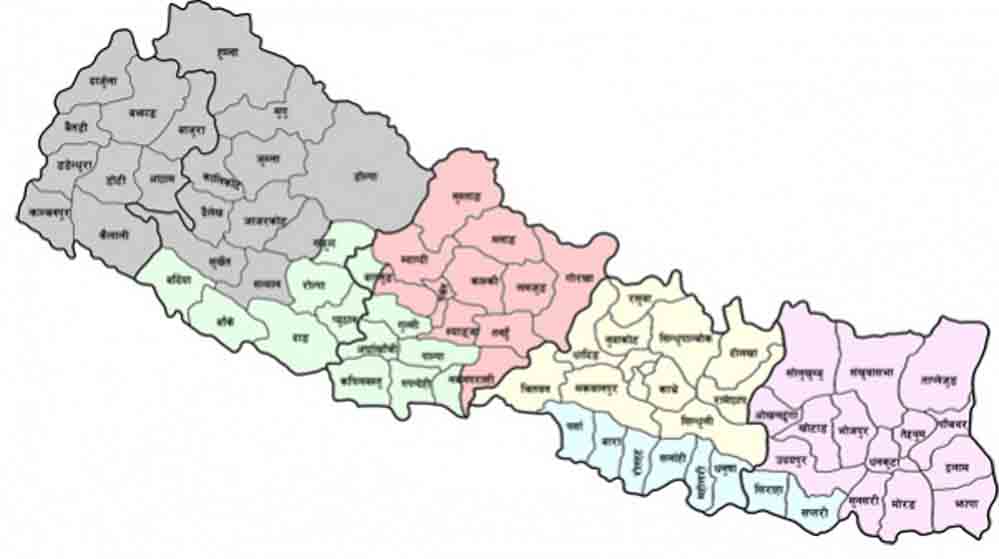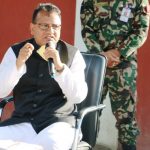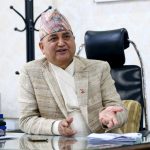Kathmandu: The Constitution of Nepal has endowed the municipal and village executive with all three powers – legislative, executive and judiciary for the first time in the constitutional and political history of Nepal. Accordingly, schedule 8 of the Constitution enlists different 22 powers of local level while schedule 9 includes a list of 15 concurrent powers of federal, provincial and local levels. Besides, the statute has also envisioned a judicial committee headed by the Deputy Mayor or the Vice-Chairperson, with legislative powers resting on municipal and village assemblies.
The local level government enshrined in the statutory provisions has recently been translated into action through the local level elections held in six out of seven provinces.
With the structures in place, a mixed bag of opportunity and challenge now lies before the newly-formed local level governments. It is indeed an opportunity since the local governments are equipped with never-ever imagined of authority to perform their executive, legislature and judiciary roles. The challenges however are also galore because the novice people’s representatives have to deliver to serve the best interests of the people in the new setup, which is very new and may be overwhelming to them.
Considering the significant powers that the ruling parties hold in the local level governments, the role of the opposition would be very crucial to check wrongdoings of the ruling forces and keep democracy vibrant. Surprisingly, there is no statutory arrangement of opposition in the local level government. It may be an advantage to the elected local government to push its agenda without any challenge. But presence of a constructive opposition would have been a strong medium to hold the elected representatives to account.
Article 221 (2) of the Constitution reads, “A Village Assembly consists of the Chairperson and Vice-Chairperson of the Village Executive, ward Chairpersons and four members elected from each ward and members of the Village Executive elected from Dalit and minority communities”. Article 223 (2) has a similar provision in regard to the composition of the municipal assembly. This is indeed a constitutional loophole to limit the space of opposition in the decision-making process.
Nevertheless, the constitutional hiccup has intentionally or unintentionally created a space for the Civil Society Organizations (CSOs) to fill the void. “Civil society” covers a vast range of activities and includes any voluntary collective activity in which people combine to work on a particular issue. Civil society can include charities, international bodies like the Red Cross, human rights organizations, and nongovernmental organizations improving health, education and other development-focused goals, states the Report of the Special Rapporteur on the rights to freedom of peaceful assembly and of association.
While substantiating the concept, columnist Achyut Wagle states, “CSOs and media, like the legislature, executive, judiciary, political parties and people/voters, are also the part of the ‘coherent whole’ of a democratic process. Mainly it has scope in three areas – information, empowerment and advocacy for good governance to make federalism functional in Nepal”. CSO’s role is more pronounced in the areas of information and accountability where they have no vested interests and thereby work for public good without taking money.
In this context, CSOs should explore their role in expanding people’s access to information, empowering different actors and demanding good governance. CSOs can critically ask the people’s elected representatives at local level as how the latter are exercising the constitutionally-endowed powers. “An ideal role of the CSOs is to ask question to the representatives about the progress of their areas of work as stated in the constitution and hold them to account of their decisions. An example of question to the representatives can be – what did you do to protect and develop languages, cultures and fine arts which is one of the stipulated function of the local government(Number 22 power of the local level enshrined in Schedule 8 of the Constitution)?”,Wagle added.
In addition, CSOs should be taken as the partners of prosperity in federalism which could collaborate with government in evaluating public policy and providing analytical support to the local government. The mutual accountability of local government and civil society should be capitalized to create synergy required to further open up new avenues, overcome challenges and march together for prosperity.
Almost two years have elapsed since the promulgation of the constitution. However, people in the margin are not aware of their rights and entitlements to reap benefits. The torch-bearing role of CSOs is much anticipated to make people aware of their rights and responsibilities and keep vigil on the local government for proper use of authority. As federalism is a new practice in Nepal, building capacity of multiple actors associated to its management such as people’s representatives, citizen’s organizations, community-based institutions, parliamentarians and political parties is indispensable for its successful experiment, which also calls for strong partnership between CSO and local government. The collaborative approach should also be visible in organizing policy dialogues, orientations and relevant discourses on local governance and federalism.
Hence, it is high time for the local governments and CSOs to develop partnership for shared prosperity in a federal system. The knowledge base of CSOs and legitimacy of local government should be capitalized to make federalism a success and give people a feeling of change. The country cannot afford another experiment if federalism withers. So, there is no alternative to partnership among the responsible actors to take joint strides in the long-term interest of the people and the country.(Krishna Sapkota) RSS






